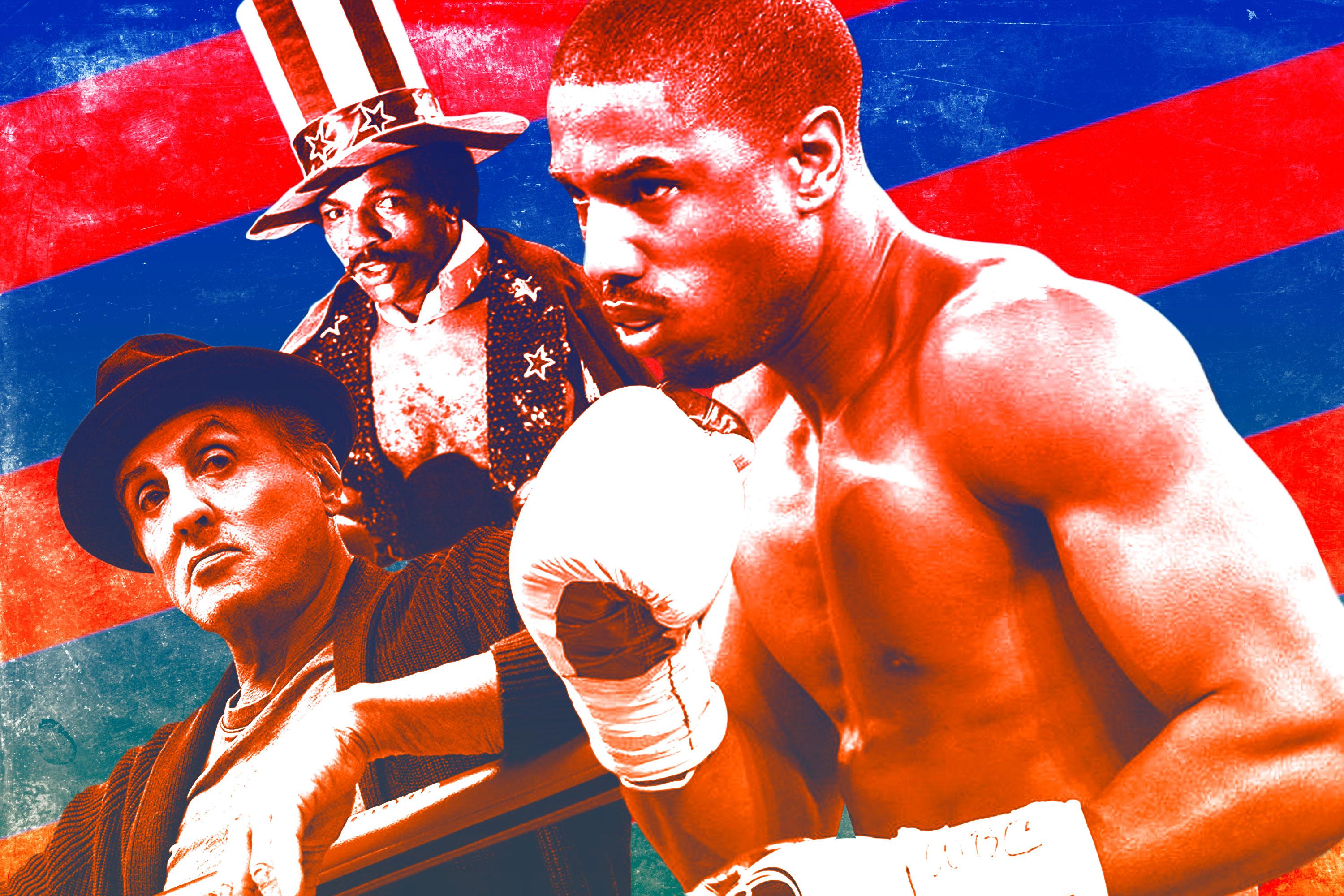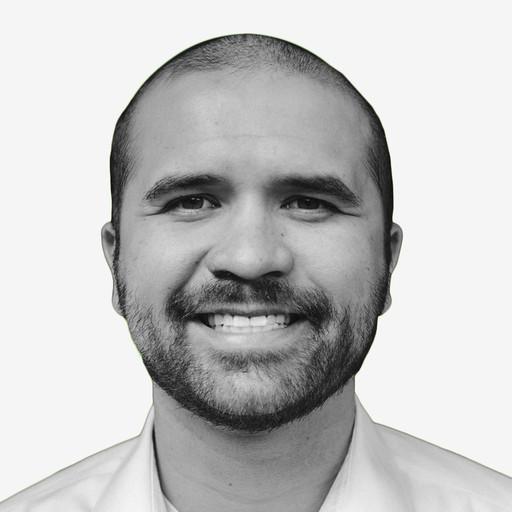
Creed is the rare franchise movie that stands on its own. Much like Black Panther, also written and directed by Ryan Coogler, the film is set in an expanded movie universe, but isn’t defined by it. Creed uses the world created by the first six Rocky movies as the backdrop to a more universal story. Adonis Creed, who goes by Donnie, is the orphaned son of Apollo Creed. He’s a different kind of underdog than Rocky Balboa. He’s a boy who grows up without his dad.
Creed captures that experience in a way few movies have. My dad didn’t die when I was born, but I understood where Donnie was coming from. My dad was diagnosed with Parkinson’s disease when I was in first grade, and he was bedridden for most of my life. When he died during my senior year of college, I felt more like a nurse to him than a son. The disease wasn’t my father’s fault any more than Apollo’s death in the ring was his. But it didn’t matter. There’s still a hole in your life when you grow up without your father.
Creed starts with a flashback of Donnie in juvenile hall meeting his adopted mother, Apollo’s widow. He has spent the previous few years in the foster system after the death of his birth mother, who had been having an affair with Apollo when he died. Apollo’s widow, played by Phylicia Rashad, finds out about Donnie, and decides to raise him as her own. He ends up living with her in a Los Angeles mansion paid for by Apollo’s boxing career, but it’s not enough to make up for Apollo’s absence. Donnie, played by Michael B. Jordan in a captivating performance, finds himself drawn to boxing, even though everyone in his life reminds him what happened to his father.
Kids take things personally. When you are little, you think the world revolves around you. You have a hard time seeing your parents as people with lives of their own. Kids whose parents get divorced often think they are the ones who caused it. It’s the same thing for boys whose dads aren’t around. They feel like their father’s absence is their fault, that it means something is wrong with them. So they go out in the world looking for validation they can’t get at home. There’s a sense of identity that comes from being someone’s son. You know your place in the world. You know that you belong somewhere.
Donnie is living two different lives at the start of the movie. He works in an office during the week, and boxes in Mexico on the weekends. Creed is a Rocky movie, so there’s no question about which path he will choose, but his choice makes sense within the context of the film. It’s the only way for Donnie to forge a connection with a man he will never get the chance to meet. Coogler spells it out in a dinner scene where Adonis takes his love interest, an aspiring singer played by Tessa Thompson, on a date for the first time:
Bianca: You don’t really seem like a boxer to me. I mean, you are in shape and all, but I don’t know. Aren’t most boxers, like, street? I’m not saying you’re a square or anything, but I’m just curious, what made you want to fight?
Donnie: My pop was a fighter.
Bianca: Ahh right, that makes sense. Did he fight pro?
Donnie: Something like that.
Bianca: Does he train you?
Father-son relationships loom over the world of boxing. It’s a sport that is passed down through families. Julio César Chávez begat Julio César Chávez Jr. Floyd Mayweather Jr. was trained by his father (Floyd Mayweather Sr.) and uncle (Roger Mayweather). Creed leans into that dynamic. One of the guys who trains Donnie also trains his own son. Donnie’s first professional fight is against Leo Sporino, a Philadelphia fighter groomed by his father, a trainer who has a long history with Rocky.
Creed is about how men find identity in each other. The relationship between Donnie and Rocky, who is a combination of trainer, mentor, and surrogate father figure, takes center stage. Rocky has issues of his own when he meets Donnie. He had never gotten over the deaths of his wife and best friend, and his son left Philadelphia to get out of his father’s shadow. Without anyone who needs him, Rocky is ready to die. When he is diagnosed with leukemia, he refuses chemotherapy. Donnie gives him a reason to live. Rocky needed to be a father just as much as Donnie needed to be a son.
The turning point of the movie is a jailhouse conversation between Rocky and Donnie. Distressed after finding out that Rocky has refused chemotherapy, Donnie gets into a fight backstage before one of Bianca’s shows. He ends up in jail, nearly destroying their relationship. He was lashing out in that moment, because he felt like Rocky had abandoned him, just like Apollo had so many years before. Stallone has given a lot of tearjerker speeches in the Rocky movies. My favorite is probably the one he gives his son in Rocky Balboa, but the one he gives in Creed isn’t far behind:
“You hate me. That’s what it is. Or maybe you are mad at someone who isn’t here, and can’t defend himself. I understand what you are going through, young man. I know what it’s like. To feel abandoned. To be mad at everything. You are a better person than that. Forgive him. Because there’s nothing you can do about it. And it’s taking a toll on you. You are still caught in the shadow. You have to move.”
The scene is a callback to the movie’s opening, when a pre-teen Donnie is sitting in a jail cell after getting into a fist fight in juvenile hall. The chip on his shoulder never went away. For all the progress he’d made in his life, going from juvenile hall to championship-level boxer, the same issue continued to hold him back. He had pushed the pain of not having a father down deep, but never actually dealt with it.
In his first letter to the Corinthian church, the apostle Paul said that when he was a child, he talked like a child, and reasoned like a child. And when he became a man, he had to set aside childish things. That’s not an easy thing to do, especially when you don’t have an older male role model to show you what that is supposed to look like. Without that presence, I felt there was no one who could discipline me or keep me in line. I was arrested twice in college, once for possessing a fake ID and again for possession of marijuana, and I narrowly avoided getting arrested several more times in my early 20s. It wasn’t until I started going to therapy that I realized how much my dad’s illness impacted me. I was mad for most of my life. I was jealous every time I saw one of my friends shooting hoops or playing catch with their dad. There were just so many things that he missed, so many things I had to figure out on my own.
A lot of boys from broken homes have similar stories. Boys who grow up without fathers are three times more likely to be arrested by the time they are 30 than those who grew up in two-parent homes. They are 68 percent more likely to abuse drugs and alcohol. Not every kid who grows up without a dad ends up getting into trouble with the law. But I don’t think those numbers are a coincidence. A teenage boy shouldn’t have to figure out life on his own. Growing up without a dad isn’t fair, but dwell on that too much and it will destroy you.
Creed, like every other Rocky movie, ends with a ridiculously over-the-top championship bout. The series itself is a grand exercise in wish fulfillment. Rocky Balboa starts from nothing and fights his way to the top because he works harder and wants it more than anyone else. The reason we love those movies is that real life doesn’t usually work out that way. Unlike Donnie, no one gets a shot at the world champion in his second professional fight, no matter who their father was. But there’s an even more personal element to that wish fulfillment in Creed. The climactic fight is the type of cathartic experience every boy who grew up like Donnie wishes he could have.
The symbolism couldn’t be any more direct. Donnie doesn’t use his father’s last name at the start of the movie. He fights as Donnie Johnson, taking on the last name of his birth mother. Before the final fight, his adopted mother sends him a pair of boxing shorts with “Creed” on the front and “Johnson” on the back. He’s not a fake Creed, as his opponent calls him in the run-up to the fight. He has an identity.
In the final scene, after the fight, Donnie stands in the ring with an announcer, who asks him what he would tell Apollo. “I would just tell him that I love him. I know he didn’t leave me on purpose. I’m proud to be a Creed.”

